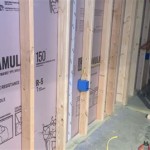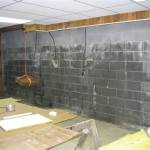1800 Square Foot House Plans With Basements: Essential Aspects
When designing 1800 square foot house plans with basements, it's crucial to consider various essential aspects that can enhance functionality, livability, and overall value.
1. Basement Layout and Flow
Plan a basement layout that complements the above-ground floor plan. Ensure seamless transitions between levels with well-defined stairs and ample headroom. Consider separating living spaces from storage areas for a more organized and efficient layout.
2. Natural Light and Ventilation
Maximizing natural light in the basement is essential. Design large windows or install a light well to allow sunlight to penetrate. Proper ventilation is also vital for maintaining air quality. Incorporate mechanical ventilation or install energy-efficient windows that allow for cross-ventilation.
3. Waterproofing and Moisture Management
Basements are prone to moisture intrusion. Ensure proper water drainage around the foundation and install waterproofing systems such as seals, coatings, or drain tiles to prevent leaks and damage. Consider vapor barriers to control moisture from the soil and prevent mold growth.
4. Electrical and Plumbing Infrastructure
Plan for adequate electrical and plumbing infrastructure in the basement. Locate electrical panels and plumbing fixtures strategically to accommodate future additions or renovations. Consider rough-ins for potential bathrooms or kitchenettes if desired.
5. Finishing and Materials
The materials and finishes chosen for the basement should be durable and moisture-resistant. Opt for flooring options like tile, laminate, or luxury vinyl plank that can withstand moisture and wear. Paint the walls with moisture-resistant paint and use mold-resistant drywall to mitigate moisture damage.
6. Energy Efficiency
Incorporate energy-saving features into the basement design. Install energy-efficient windows, insulate the walls and ceiling, and consider geothermal heating and cooling systems to reduce energy consumption and utility costs.
7. Storage and Functionality
Basements are ideal for storage and functional spaces. Design built-in shelves, closets, or cabinetry to maximize storage capacity. Consider creating a dedicated laundry room, workshop, or recreation room to enhance the functionality of the basement.
8. Egress and Safety
Ensure adequate egress from the basement in case of an emergency. Install code-compliant windows or doors that provide direct access to the exterior. Equip the basement with smoke and carbon monoxide detectors for increased safety.
9. Accessibility and Universal Design
Consider accessibility features such as ramps or elevators to make the basement accessible to all occupants. Implement universal design principles throughout the basement to improve livability and comfort for individuals with disabilities.
10. Future Expansion and Flexibility
Design the basement with potential future expansion in mind. Consider unfinished areas or dedicated spaces that can be transformed into additional rooms or living spaces as needed. Ensure the electrical and plumbing infrastructure is planned accordingly to accommodate future additions.

House Plan 82350 Ranch Style With 1800 Sq Ft 3 Bed 2 Bath
1800 Sq Ft Country Ranch House Plan 3 Bed Bath 141 1175

House Plan 59084 Traditional Style With 1800 Sq Ft 3 Bed 2 Ba

1800 Sq Ft Ranch House Plan With Bonus Room 3 Bed 2 Bath

Single Story House Plans 1800 Sq Ft Arts New Farmhouse

Ranch Style House Plan 2 Beds 1 Baths 1800 Sq Ft 303 172 Houseplans Com

Ranch Style House Plan 3 Beds 2 Baths 1800 Sq Ft 17 2142 Country Plans One Story

House Plan 85004 Quality Plans From Ahmann Design

House Plan 3 Beds 2 Baths 1800 Sq Ft 17 2141 Floor Plans Ranch One Story

House Plan 59067 Traditional Style With 1800 Sq Ft 3 Bed 2 Ba
Related Posts







